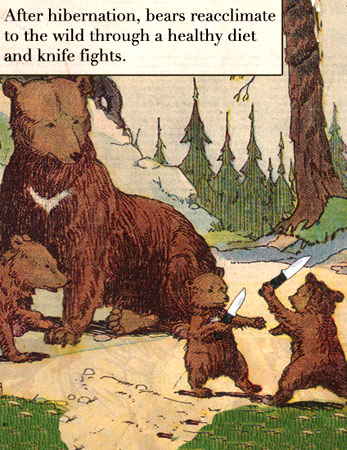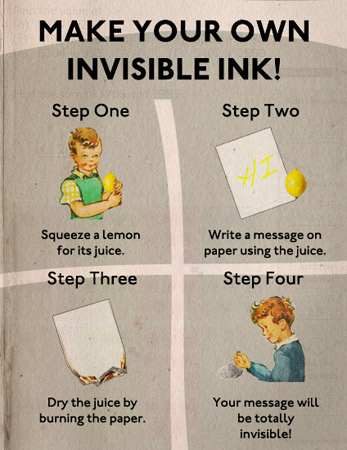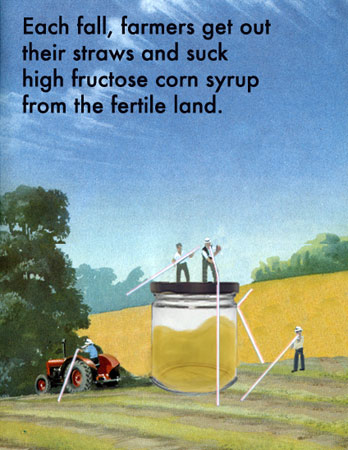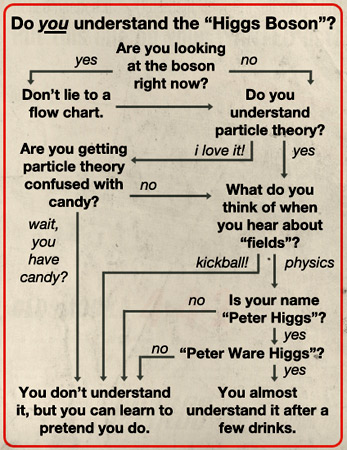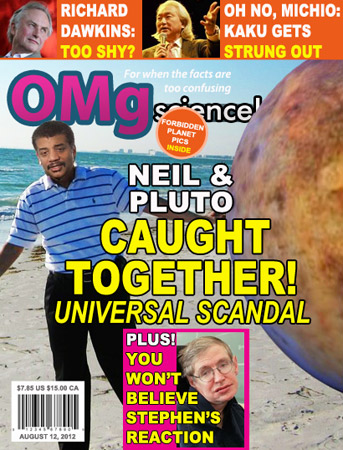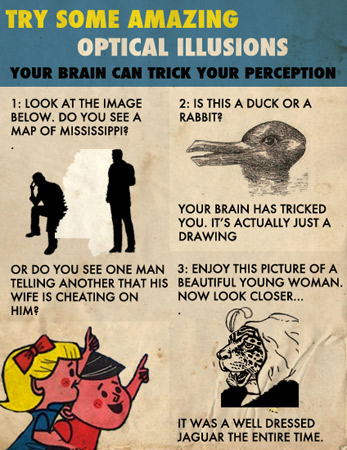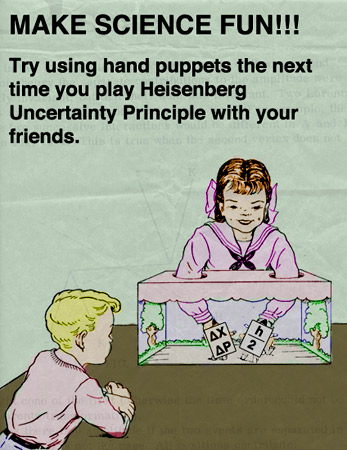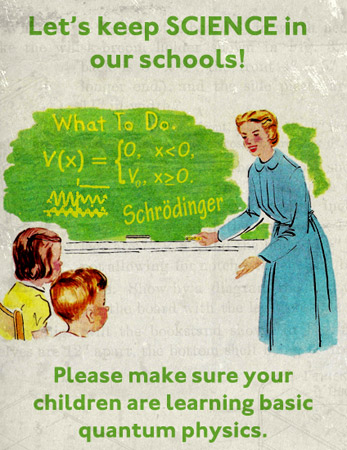Confessions of a Fake Scientist
What I learned about real science by making fun of it.
The most difficult part about being a fake scientist is telling people what you do for a living. It’s hard enough with friends, family members, and Internal Revenue Service auditors, but small talk is even rockier terrain. One summer on a flight from Chicago to San Francisco, I found myself stammering in my airplane seat when the subject of occupations came up. Five-hour flights can create some awkward situations, but this one seemed particularly perilous. I had to admit I was a fake scientist. And I was sitting next to a real one.
Since 2010, I’ve been running a blog called Fake Science. It presents made-up science facts in the form of colorful educational posters. If you think the name is too on-the-nose, it is. But there are still a lot of people who think even my dumbest fake facts are real.
As the blog grew popular, educators, scientists, and eventually publishers took interest. I wrote a 272-page beast of a textbook called Fake Science 101, which covers all the scientific disciplines. It’s available for back-to-school season, just like a real textbook with pictures, footnotes, and even chapter quizzes. The book became a full-time gig, and it involved a lot of talking about science without being burdened by the facts. As an English and history major (in college I took Physics in the Arts and got a B), I was surprised to find myself a self-proclaimed expert. I wasn’t used to talking about science at all.
Occasionally, though, I found myself doing just that at parties, wedding receptions, and on airplanes. My seatmate on the flight out West was a government entomologist. Our conversation covered a range of topics, from her airplane reading about long-distance running to my plans for my trip. Bees were her area of expertise, and I was familiar with the year’s most popular bee news. I’d heard quite a few breathless reports about the phenomenon of “disappearing bees” around the world, and I wanted to hear her take. I fantasized about dark forces and apocalyptic scenarios. Without bees, where would we find the honey to put in our tea? Would parents have to sit their kids down for serious sexuality talks about only “the birds?”
What I didn’t tell her was that I had jokes in my textbook about her field, and a few of those jokes centered on the fact that bugs are icky. When I was holed up in my apartment, it seemed funny to write about bees and bears making honey together or to show a bee holding a protest sign, but it felt very awkward to mention them to somebody who had dedicated her career to the study of insects. Instead of elaborating on my work, I listened as she told me about urban beekeeping.
Though actual science has remained opaque to me during my tenure as a fake scientist, I have learned a bit about real scientists. When I started encountering them, I took an anthropological pleasure in analyzing their quirks and humor. (I’m so nonscientific that even when I’m pretending to be a scientist, it’s a social scientist.) I should note that my data on this group isn’t statistically significant or peer reviewed—I am, after all, the type of scholar who spends most of his time Photoshopping babies drinking from beakers. Still, I’ve gleaned a bit about scientists from having conversations, responding to Facebook comments, and reading enthusiastic tweets.
I learned quickly that real scientists—the people I’d satirized with crisp lab coats and serious lab-goggle-covered faces—could be incredibly silly. I should have known that from my friends in scientific fields, but it remained shocking to see lauded pros act gleefully absurd. When I created a fake gossip magazine about scientists, I never anticipated that Mike Brown would tweet back. (He’s an astronomer whose Twitter name, @plutokiller, should give you an idea how he feels about his role in declassifying Pluto as a planet.) That silliness drew scientists to my site, and their intelligence only enhanced it.
Of course, absurdity isn’t universal, and not all scientists are Monty Python cast members in waiting. I discovered that some could be obtusely literal. I can’t count the number of times a reader has told me an aspect of one of my posts isn’t actually “fake" enough, even if the joke is obvious. I had one long conversation with a molecular physicist who stared at me blankly as I tried to tell him about my strange profession. I laughed to indicate that it was all a joke. He glowered beneath his beard. In his defense, my knowledge of molecular physics is limited to its spelling.
Both humorous and humorless real scientists, however, had a common thread: an openness to challenges, questions, and revisions. Among liberal-arts types, I occasionally encounter willful ignorance of the hard sciences. (For reference, see some paragraphs of this article.) Scientists, however, try not to let their pride preclude curiosity. That doesn’t mean they lack passion—tell any scientist that Edison is better than Tesla, and you’re guaranteed to start a flame war that will outspark any Tesla coil. But their passion rarely comes at the expense of intellectual integrity.
One day, I posted a picture of bears emerging from hibernation to have knife fights. For me, it was just an average Monday. I thought I was done, but I was surprised to read a comment on my Facebook page. A reader noticed the distinctive markings on my bears. The bright shape on their chests indicated they were Malaysian sun bears, and their warm climate meant they didn’t hibernate. My science was fake for that reason. I’d been called out, but I loved the way it had been done. Real scientists are curious enough about the facts to make fun of them more accurately.
When I began my career as a fake scientist, I’d imagined “science” as the final word in an argument. Science is a subject that a lot of people are intimidated by, either because of the discipline required to practice it or because of the fear of smelling like formaldehyde. My experience proved different. For real scientists, science isn’t a cudgel. Realizing that helped me reawaken my own interest in science, and though I stay safely in the “pop science” confines of lighter reading, I’ve discovered a way of looking at the world that I respect. Science is the beginning of a conversation.
On the airplane, I’d been nervous to tell my entomologist seatmate what I actually did. It went fine, though, and we continued to talk. Like all great conversations, it felt as if each participant was equally curious about the other. I quizzed her about how bees pollinated vast almond fields in California as I ate my bag of peanuts. Eventually, however, we returned to the disappearance of the bees.
What she said echoed what I’d learned about real scientists while running the blog and writing the textbook. She explained that the honeybee crisis was distressing but lacking in data and possibly overblown. There were a few available explanations. Some scientists theorized that pesticides had made it difficult for bees to navigate. (Their sense of direction might be impaired, like a broken GPS constantly “recalculating.”) Others proposed that mites were the culprit, and beekeepers were split about how best to combat them. Regardless, most scientists didn’t believe, as I did, that the involvement of aliens should be considered.
I still believe that, at its worst and most facile, science can take on an unearned sense of authority. That deserves to be mocked. My skepticism isn’t contrary to science, however—it’s baked in the cake (or, if you prefer, mixed in the beaker). Most real scientists provide the opposite of the definitive answers I’d imagined when I became a fake scientist. They seek a series of discrete questions, test them, and mold the results into a theory. The bees are dying for a reason. As fleeting as it was, my airplane conversation was about real science. It turns out to be a lot better than the fake stuff.
Slide show: Fun (Fake) Facts About the World of Science
